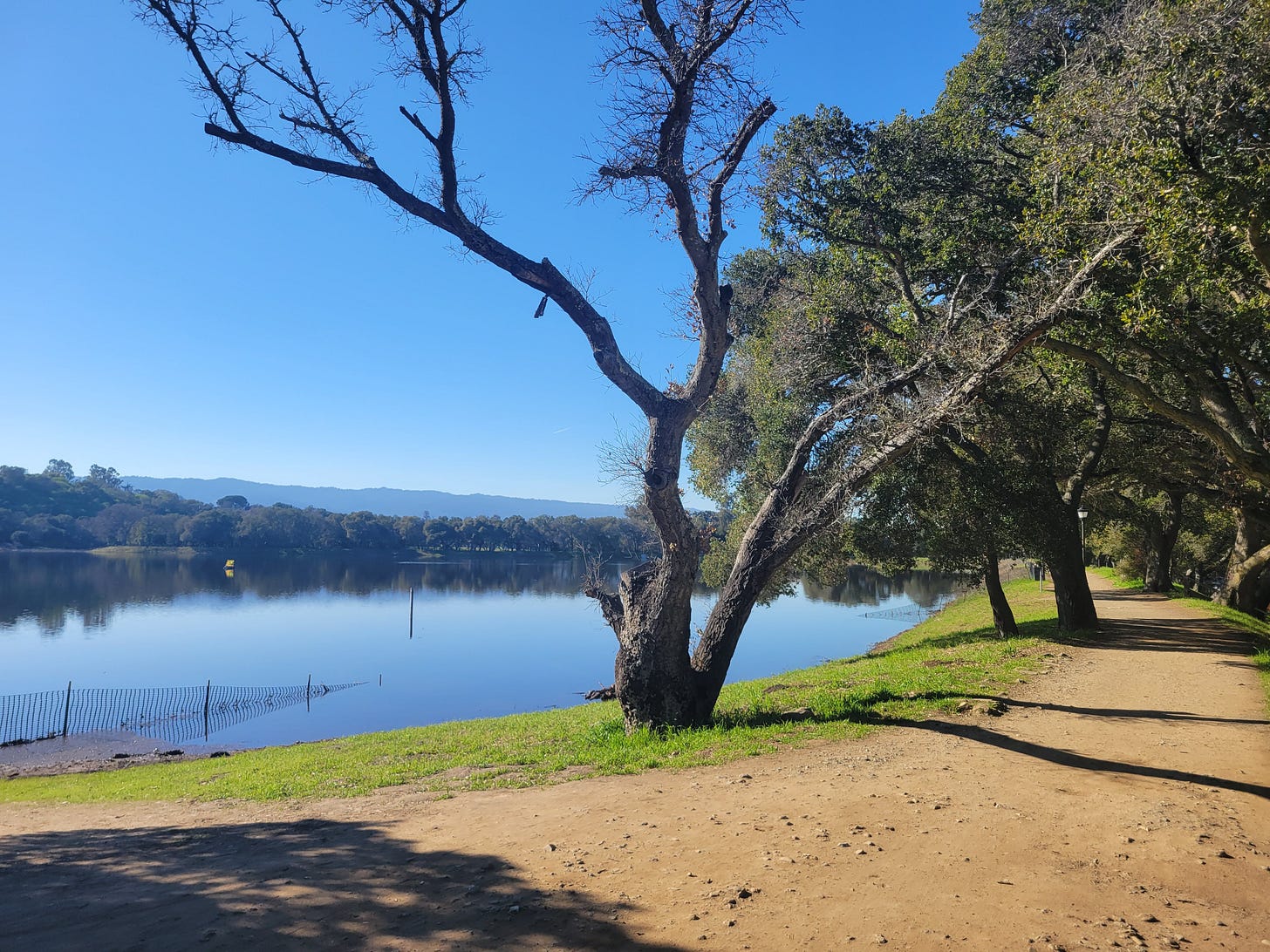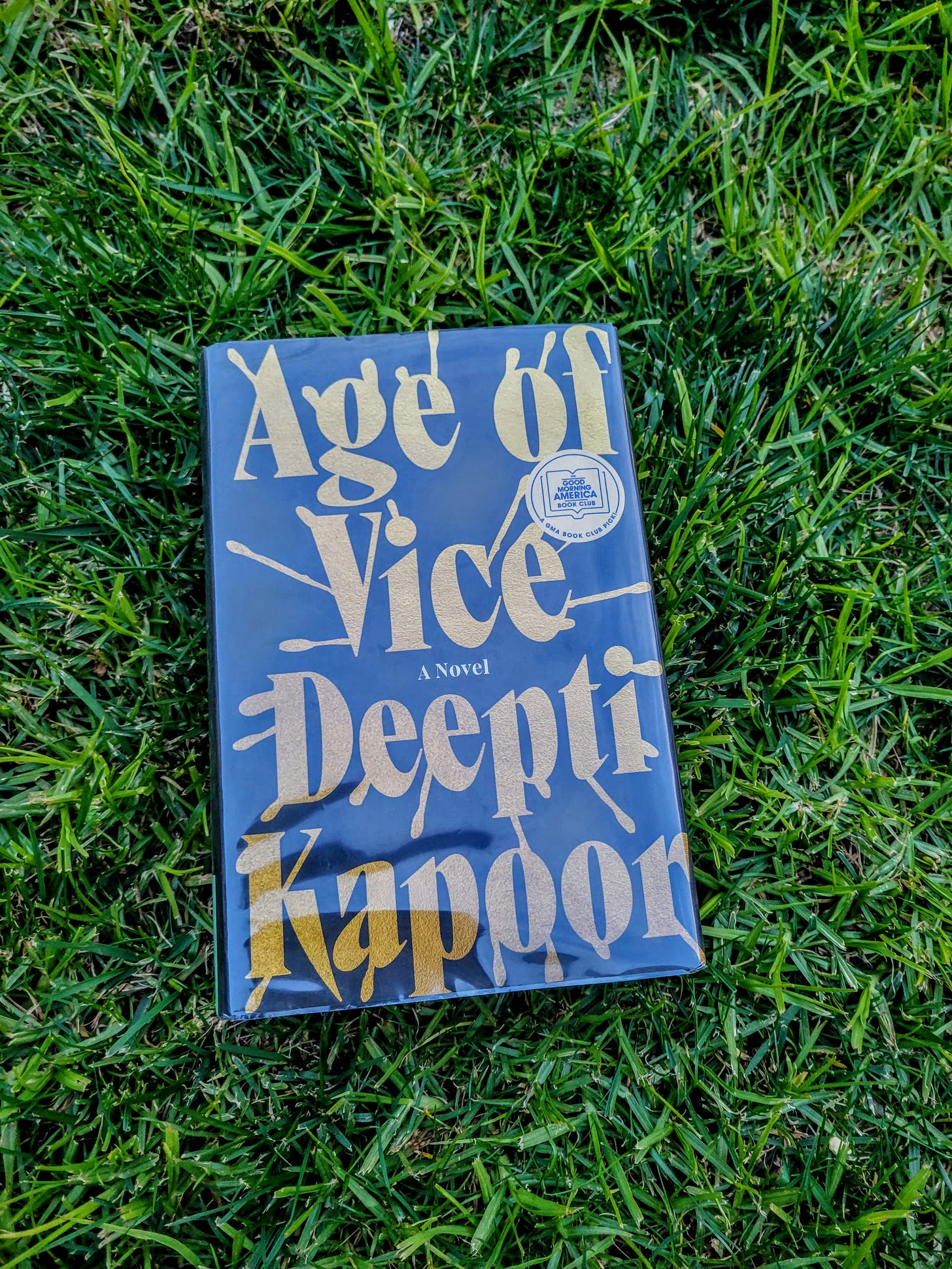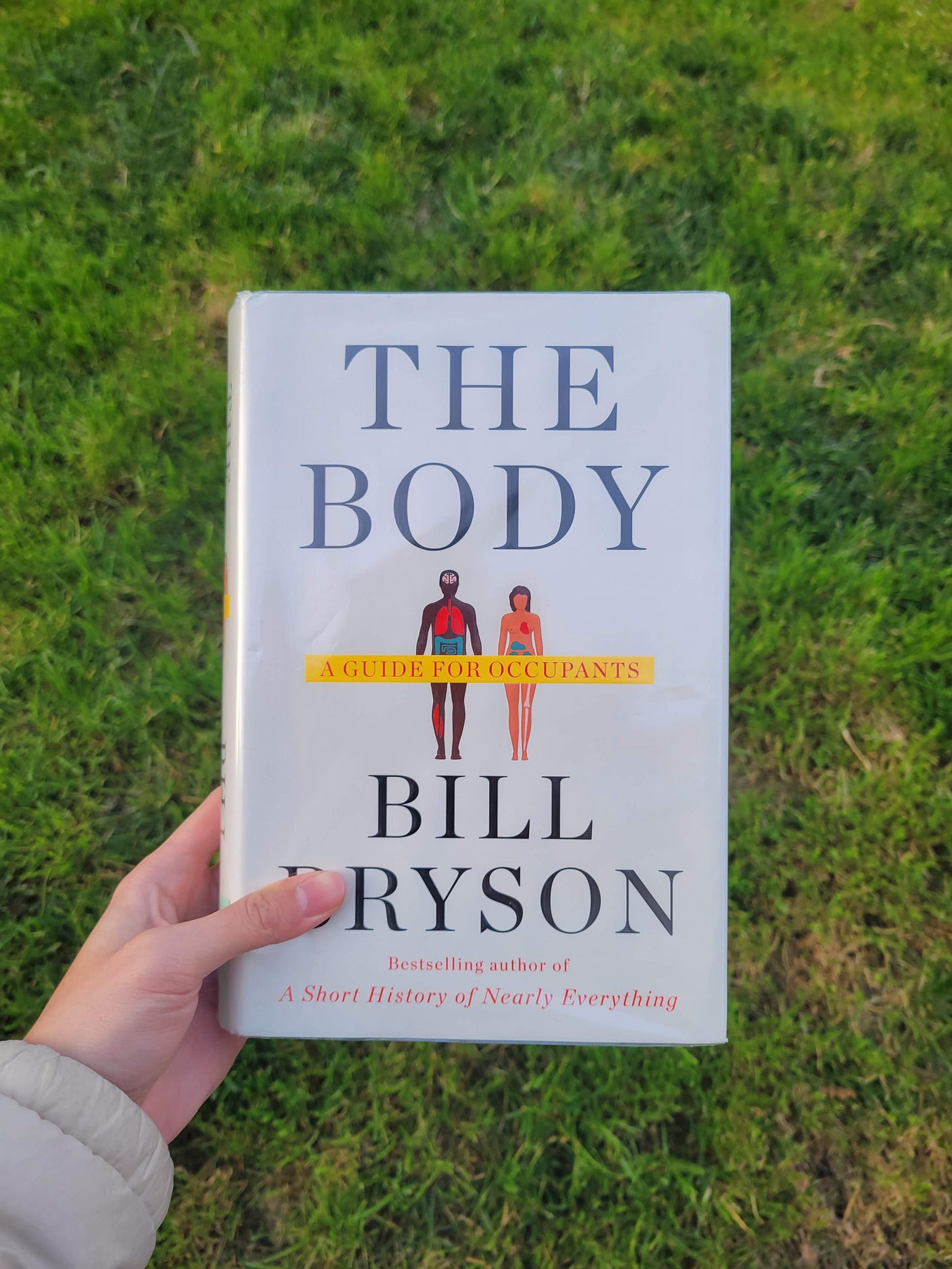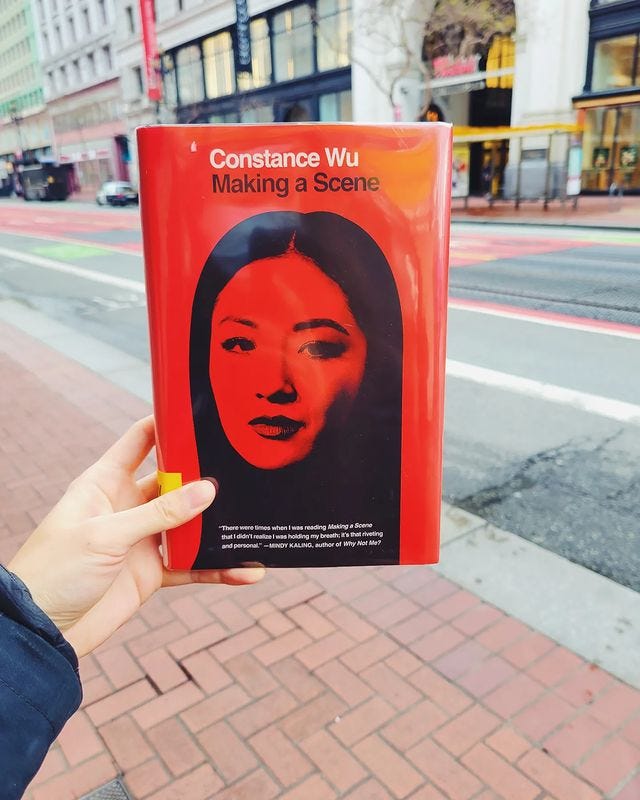📚 Every Tiny Thought is where I share book reviews on diverse stories from around the world (occasionally before the publication date), tiny joyous things, and finding home in America. If you’re new here, welcome!
After a busy but riveting first week at my new job, sitting down to write for pleasure feels like a luxurious pause and a tiny retreat for my soul. Even though the actual writing process is often difficult, I am grateful that it’s a creative mental space I’ve carved out for myself amid an otherwise busy life.
This week, I am sharing three books from my January reads, plus some tiny joyous things as usual.
Age of Vice (2023) by Deepit Kapoor
The first installation of a trilogy, Age of Vice is a sprawling family saga that takes place in Northern India surrounding three main characters: Ajay, a boy who is sold by his mother to be a servant to pay for his family debt while searching for his own identity; Sunny Wadia, the heir of a rich, corrupted, and powerful businessman in Dehli yet long shadowed by his father; Neda, a naive and curious journalist who gets tangled up in Sunny’s luxurious lifestyle. As the novel unfolds, the fate of these three characters becomes dangerously intertwined. A social critique of class, the caste system, corruption, power, and those who abuse it, Age of Vice portrays the rise of modern India where the rich become richer and the poor become poorer.
This novel has been compared with The Godfather, The Great Gatsby, and Succession in the sense that they share similar themes: the rich hiding behind their gilded mansions while the poor suffer on the street; family business being run like a mafia, and the tension between the new and the old generation when it comes to power and money. However, I never like the idea of comparing a piece of new work, especially those from the Global South, to something more established and well-known in the West, centering “the West” as the standard. A novel should stand on its own and should be its own work of art to the world, and Age of Vice certainly deserves to be a great novel on its own terms.

If you have read this book, I highly recommend that you watch
book club discussion between Roxane Gay and the author, Deepti Kapoor on this book.The Body: A Guide for Occupants (2019) by Bill Bryson
This is an informative, fun, myth-busting, and educational book about the human body, the evolution of medical science (thank goodness), and how much we don’t know about it. Bryson takes us on a quirky tour through different organs and systems of our body, the brain, the head, the immune system, the guts, the heart and blood, sleep, and the inevitable, disease and death.
I learned weird and interesting facts about medical history and the human body through Bryson’s research. For example, doctors in the early twentieth century still used to use “bleeding“ as a way to heal ill patients because it was “thought to be beneficial not just for illness but to instill calm.” I also didn’t know that the X-chromosome was named because the person who discovered it didn’t know what it did. The letter was chosen due to its mystery rather than for its shape. And the Y-chromosome counterpart was named similarly to the letter after “X“ in the alphabet, following its subsequent discovery.
Unlike books that are too scientific or academic for the everyday reader, Bryson writes in a way that is informative, interesting, and most importantly, memorable.
The great paradox of the brain is that everything you knew about the world Is provided by an organ that has never seen the world. Everything you know about the world comes from the brain, yet it has never seen the world itself.
Bone is the only tissue in our body that doesn't scar. If you break your leg after it heals, you cannot tell where the break was. There's no practical benefit to that bone just seems to want to be perfect.
It’s a book that anyone who has not gone to medical school should read. Bryson really wants you to learn about your body, how it works, and how it can break. I think we all have a duty to learn about our body, and how to properly take good care of it.
Last Night at the Telegraph Club (2021) by Malinda Lo
This is a young adult novel about two teenage girls who fall in love in 1950s San Francisco. Lily Hu and Kath Miller, one Chinese American and the other Caucasian, start out as high school friends and gradually grow intimate as they spend time in the Telegraph Club, an underground lesbian nightclub in San Francisco. Lily explores her sexuality as she struggles between being “a good Chinese girl” who fulfills her filial duties and a brave soul that pursues her first love. As Lily’s classmates and her family other discover their secret relationship, tensions rise between Lily and her family during the Lunar New Year celebration and the following days.
It’s a tender coming-of-age story and a well-research historic novel of two brave heroines trying to find their place in the world amid the rising pressure of McCarthyism, the Red Scare, and the Lavender Scare. Lo also includes a note section at the end of the book that details the lengthy research she has done for this novel on the language used, Chinatown and Chinese Americans, and the lesbian and gay community in 1950s San Francisco. It’s a book for anyone who has loved.
My college History professor gifted me this book, along with several others over the holidays and highly recommended it. You can check out his incredible book review on Instagram @hxkita_books.
My January Reads
Age of Vice (2023) by Deepit Kapoor
The Body: A Guide for Occupants (2019) by Bill Bryson
Last Night at the Telegraph Club (2021) by Malinda Lo
She Said: Breaking the Sexual Harassment Story That Helped Ignite a Movement (2019) by Jodi Kantor and Megan Twohey.
If you have not already, check out the movie She Said (2022), which accurately portrays the events in the book that led to the article that exposed Harvey Weinstein's harrowing history of abuse and sexual misconduct against women. I also recommend Believing: Our Thirty-Year Journey to End Gender Violence (2021) by Anita Hill and Know My Name (2019) by Chanel Miller.
Making a Scene (2019) by Constance Wu
An okay celebrity memoir that gets more attention than what the book has to offer. You can read my short review on Instagram if you’re curious about the book.
Tiny Joyous Things
I created a new page to archive all the book reviews I have shared in this newsletter, and I will update this page regularly as new reviews come out. It’s only been three months since I started this newsletter, but I am really proud of the small number of reviews and books that I’ve been able to share with all of you here. If you have enjoyed this newsletter, feel free to share it with anyone who also loves books from around the world.
It is slowly getting warmer here in northern California. Although it never got that cold this winter, shedding away thick layers of clothes has made my body and mind lighter. I can already smell spring around the corner, and that makes me smile.

Thank you always for being here. Tell me in the comments, what have you been reading lately and what are some of the small things that brought you joy this week?
Until next time,
Yuezhong










Enjoyed the reviews. Looking forward to reading more.
Amazing! These are great book recommendations too. I'm currently reading Ray Bradbury’s The Illustrated Man.